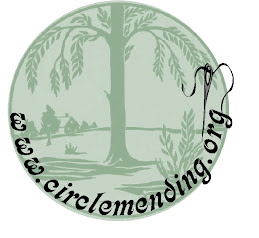I continue to choose to investigate the relationship between our ancestors and their music. One way to get a sense of the importance of something to a prior generation is to look at how important it is to us, today. I doubt anyone will disagree with my claim that music has a vital and obvious role in our culture. If you do question that, check out what happened on Tuesday, 7 July 2009 on every basic television station throughout the morning and even most of the day (at least here in Southern California): non-stop coverage of the memorial for recently deceased musician Michael Jackson.
I am not here to debate the type of music that Michael performed throughout the various stages of his life, but the fact that he touched innumerable lives through the use of his music was evident in the crowds that attended his memorial and theater showings of that event. How many thousands, or even millions, watched the event on their home televisions can only be estimated. Clearly his music had an impact on people of all ages!
Another evidence of music and its role in our lives was brought home to me this week, also. I have been in bed nursing a cold and bronchitis and decided to watch (again) my DVD of National Treasure: Book of Secrets; only this time I watched it with the commentary from one of the directors who talked some about the music that was employed in the final product. He mentioned that it was important to keep the music volume down during character dialogue, but added that the music still needed to be in the background or its absence would be noticed. He also mentioned the need to have the music match the action. And that's something we may not consciously notice, but we respond to (emotionally) as we watch a video. If a scene is suspenseful, we can figure it out from the music that is played; if it is a funny scene, the use of music will tell us with a light tune or use of whistles or other noisemakers that communicate "funny, laugh now." I would venture to guess that if you watched a video with music but no dialogue, you could tell the emotions communicated in the various scenes.
This technique was a major component of the first motion pictures: the silent films. The live organ music was part of the show: the audience could tell what type of emotion was being conveyed by listening to the organist. My father, who was born during the era of the silent film, became a theater organist for fun later in life, playing to various films that he and Mom showed in their own home. Friends and family would come by to watch an old film and listen to his well-timed accompaniment. For many, it took them back to a much earlier time in their lives when things were simpler. (My folks were members of the Chicago Area Theatre Organ Enthusiasts for many, many years.)
So whether we are talking about the 21st Century or the early 20th Century, we know that music connected people to emotions and events. Is there any reason to believe it would not have been the same to those who lived in earlier Centuries? More on emotions and music in a future blog. For now: keep the music playing!
Subscribe to:
Post Comments (Atom)









Sometimes when I'm doing genealogy work at home, whether finding census images on the 'net or doing filing or making entries into my software or sitting and examining a document, I like to listen to music from the era of the ancestor I'm working on at the time. It helps put me in the mood of THEIR time, and establishes an emotional connection.
ReplyDeleteThat's very cool. I hadn't thought about doing that, but it's a great idea. Thanks!
ReplyDelete